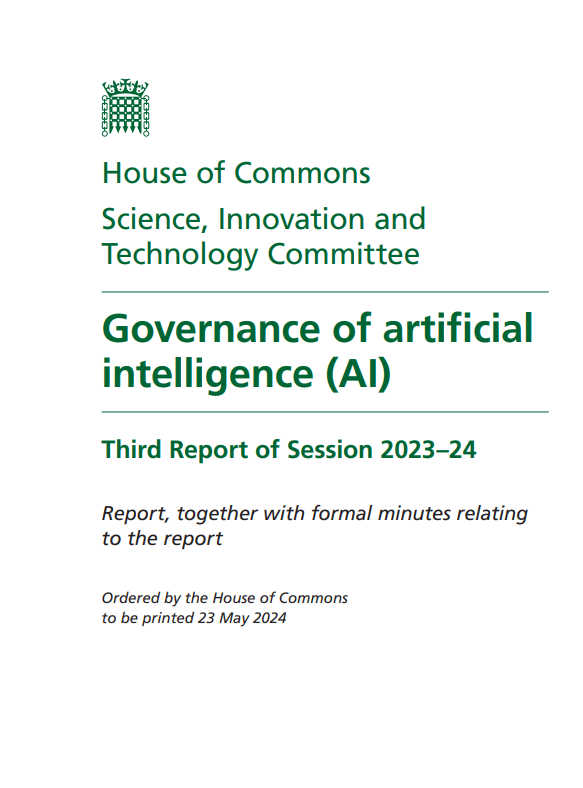This document is a comprehensive report on the governance and regulation of artificial intelligence (AI) produced by the Science, Innovation and Technology Committee. It aims to:
- Examine the impact of AI on different areas of society and the economy.
- Assess whether and how AI and its various uses should be regulated.
- Review the UK Government’s AI governance proposals.
- Address the progress and updates since the interim report published in August 2023.
Main takeaways:
- International Developments in AI Governance:
- Jurisdictions like the UK, EU, and the US are establishing regulatory frameworks for AI.
- International discussions, such as the AI Safety Summit organized by the UK Government, are ongoing to address AI governance.
- Twelve challenges of AI governance:
- The report revisits the twelve challenges identified in the interim report, which include issues like access to compute resources, the explainability of AI models, intellectual property, liability, and employment impacts.
a.AI’s Impact on Employment:
- AI is likely to change the nature of work, potentially putting some jobs at risk while enhancing productivity in other areas.
- Emphasis on education and retraining is necessary to equip workers with skills to adapt to AI technologies.
b.International coordination:
- While a global AI governance regime may not be realistic or desirable, international dialogue and sharing of best practices are crucial.
- Future AI Safety Summits should focus on addressing safety risks and ensuring AI’s benefits are realized globally.
c.Existential risks of AI:
- The Government’s assessment is that existential risks from AI are high impact but low probability.
- Ongoing engagement with experts on these risks is recommended, with national security taking primary responsibility for assessing and responding to such risks.
d.AI legislation and regulatory framework:
- The report suggests that the next government should be ready to introduce new AI-specific legislation if current approaches prove insufficient.
- Regular reviews of the efficacy of the regulatory approach should be conducted, including an assessment of technological developments and their compliance with set criteria.
e.Role of Regulators:
- A regulatory gap analysis is essential to determine if regulators need new powers to respond adequately to AI-related issues.
- Coordination and resourcing of regulatory bodies are highlighted as important factors for effective AI governance.
This document underscores the importance of balanced AI governance that promotes innovation while addressing potential risks and ensuring public trust in AI technologies.
